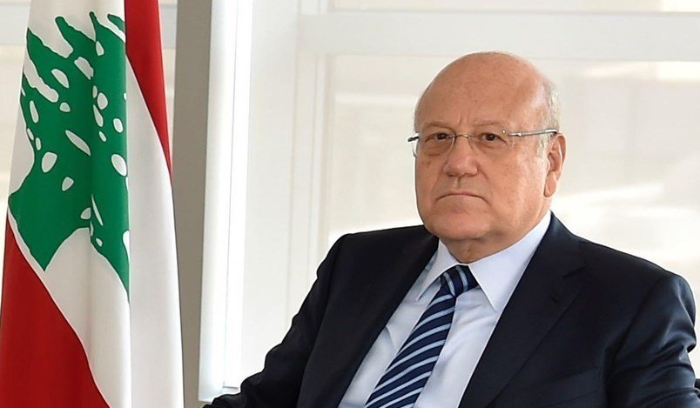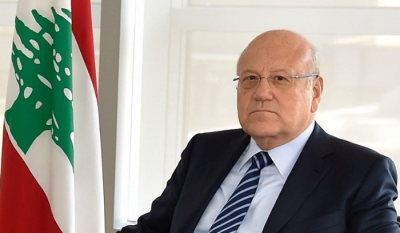Reported by "Al-Jumhuriya": The situation heated up yesterday regarding the parliamentary elections, with both nominations and refusals to run for various seats across different districts. The theoretical perspective indicates that elections will take place on time in mid-May; however, many practical questions arise regarding the state's administrative and security capabilities to ensure the elections proceed smoothly amidst the ongoing crisis in the country at all levels, along with the escalating living conditions pushing people to lose faith in everything, leading to reluctance to participate in elections that could potentially re-establish a government accused of numerous failures.
Electoral-wise, Speaker Nabih Berri will hold a press conference at 3 PM on Monday at the Parliament headquarters in Ain al-Tineh, focusing on the parliamentary elections. Al-Jumhuriya learned that Berri will address the elections during the conference, affirming their occurrence as scheduled in response to speculation about a postponement. He will announce the names of Amal Movement's candidates across all electoral districts, especially in Beirut, Mount Lebanon, Bekaa, and the South. Informed sources predicted that these nominations would include changes to three current Amal deputies.
Furthermore, sources revealed to Al-Jumhuriya that the "Development and Liberation" bloc, consisting of 17 deputies, submitted nomination requests to the Ministry of Interior recently, which included four changes: Yassin Jaber, Ali Bazi, Anwar al-Khalil, and Muhammad Nasrallah have been replaced by Nasser Jaber, Ashraf Beydoun, Marwan Khair al-Din, and Qubalan Qubalan.
The electoral machine sources for the "Development and Liberation" bloc confirmed that they had been active for a long time and never considered the possibility of postponing the elections. They are working as if this electoral milestone is happening tomorrow. Following the recent amendments to the electoral law in the session on October 22, guided directly by Berri, they prepared the necessary arrangements and formed committees distributed throughout regions, embarking on community meetings and direct contact with the people.
Mikati and Siniora:
With just days until the nomination deadline next Tuesday, the maneuvering room for new nominations shrinks. Reports indicate that former Prime Minister Fouad Siniora decided to abstain from nomination, linking his decision to a similar step Prime Minister Najib Mikati might take, as he wishes to manage the electoral process from an independent position, along with his entire government. Government sources stated that the electoral situation in the north remains unclear, and Mikati is still evaluating the situation, although he is considering abstaining from running.
Mikati was among the first to announce his intention to refrain from running for elections, asserting his position as the head of a government responsible for conducting elections. He believes it is fundamentally inappropriate for him or his ministers to run for elections to ensure the process occurs free from any influences.
Additionally, Al-Jumhuriya learned from sources close to Siniora that he has not yet made any final decision regarding nomination or refusal, and his stance will crystallize on Tuesday before the deadline for nominations closes at midnight Tuesday-Wednesday. These sources mentioned that Siniora plans to form two lists in Beirut and Tripoli, with candidates in Sidon, Shouf, and Bekaa.
In the meantime, deputies Rola Tabesh (Beirut) and Muhammad al-Hajjar (Shouf) abstained from running in compliance with former Prime Minister Saad Hariri's decision, with others expected to follow suit from now until next Tuesday.
Simultaneously, National Free Movement leader Deputy Gibran Bassil will announce the names of his candidates across all Lebanese regions tomorrow, following the finalization of nominations in some districts.
As the days draw closer to public announcements of these stances, the political and parliamentary circles anticipate an increase in the number of candidates to the maximum limit compared to nominations in the previous 2018 cycle. As of last night, the number of candidates had risen to 517, including 69 women, inching closer to the previous cycle's candidate count of 597.
Economic Conditions:
In political positions, Deputy Mohammad Raad, the head of the "Loyalty to the Resistance" bloc, emphasized during a political meeting in the South that "the golden equation of the army, the people, and the resistance remains the essence and core of the defensive strategy that protects Lebanon." He highlighted that "everything else does not protect Lebanon." Raad criticized the country's current state, stating: "The country is bankrupt; it is the land of the clever if they can steal unnoticed. But when a forensic audit is demanded at the Central Bank, a huge uproar ensues." He questioned why each sect prays for another and stated that real accountability must target the culprits.
On the military appointments front, President Michel Aoun signed yesterday the decrees for military appointments, including Brigadier General Pierre Saad as a member of the military council in the Ministry of National Defense and Brigadier General Mohamed Mustafa as the secretary-general of the Higher Defense Council. These decrees resulted in the military council being fully constituted once more, having received the signatures of Prime Minister Najib Mikati and Ministers of Defense Morris Slim and Finance Youssef Khalil, the latter having previously refused to sign the decrees due to his alignment with the "Shiite duo."
Diplomatic Maneuvers:
With Foreign Minister Abdallah Bou Habib in Antalya, Turkey, for a diplomatic forum, diplomatic efforts shifted to the Ministry of Energy and Water, focusing on the implications of the war in Ukraine. Energy Minister Walid Fayad met with the Russian ambassador to Lebanon, Alexander Rudakov, to discuss the general situation and the war's impact on Lebanon's oil sector.
Fayad stated that the meeting aimed to follow up on the overall situation, expressing hope for a swift resolution to the security crisis affecting the world. Rudakov confirmed that discussions sought to enhance bilateral relations and current projects between Russia and Lebanon. In response to inquiries about a Russian offer to establish a refinery for solving energy and fuel issues, Fayad mentioned that a general proposal was received from a private Russian company that could materialize over time.
On the economic front, prices of goods and fuels surged furiously, driven by rumors of a forthcoming rise in the U.S. dollar against the national currency. Amidst this, Prime Minister Najib Mikati convened a meeting with a delegation from the General Labor Union, discussing the economic difficulties, banking issues, and a significant gap estimated by experts to approach $75 billion. The meeting concluded with a consensus on the need for immediate measures to curb rising prices.
As of yesterday, the price of 95-octane gasoline increased by 22,000 LBP, while 98-octane rose by 23,000 LBP. Diesel prices jumped by 29,000 LBP and gas by 9,000 LBP, attributed to ongoing increases in global oil prices due to the war's repercussions. According to the new prices announced by the Ministry of Energy, the costs are as follows: 95-octane gasoline: 463,000 LBP, 98-octane: 473,000 LBP, diesel: 489,000 LBP, and gas: 311,000 LBP.
In this context, the head of the mill owners' association, Ahmed Hatteit, reassured the public of no current shortage of flour or wheat, with existing stocks sufficient for at least a month and a half, while acknowledging that an increase in bread prices is inevitable due to global wheat and oil price hikes.
Additionally, Industry Minister George Boujikian issued a decision prohibiting the export of food products manufactured in Lebanon, requiring an export permit issued by the Ministry of Industry, signed exclusively by the Minister of Industry, until further notice.
Financially, the Association of Banks in Lebanon announced that, concerning the government's decisions to provide social assistance to public sector employees—equivalent to half an additional monthly salary, with a minimum of 1.5 million LBP and a maximum of 3 million LBP—Lebanon's Central Bank informed the banks that it would only cover 60% of the mentioned social assistance in cash. Thus, banks will adhere to the Central Bank's decision, necessitating other payment methods for the remaining 40% (such as cards or checks).




